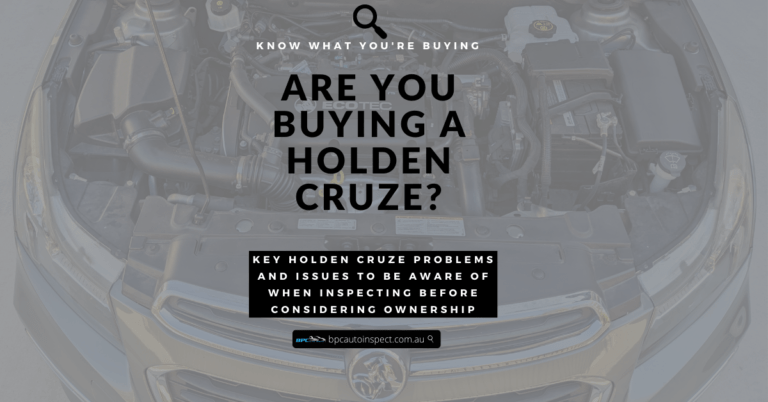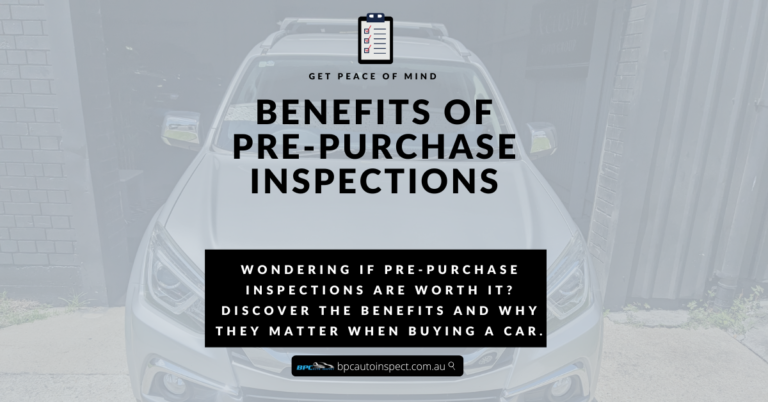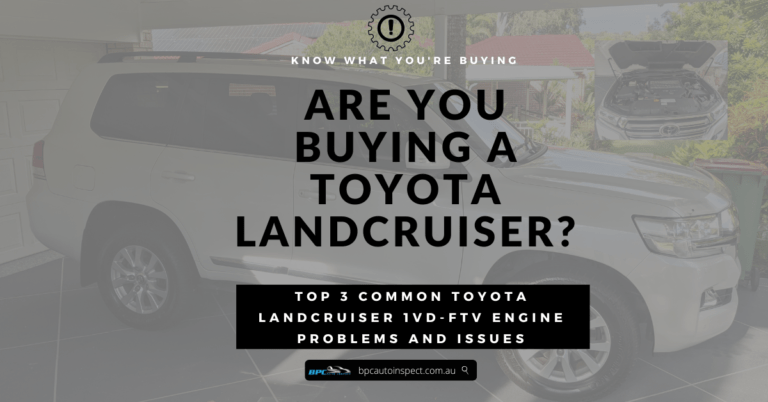Top 6 Holden Captiva Problems
You need to know about the Holden Captiva problems because this SUV has recently developed a reputation for reliability issues. Whether you currently own one or are contemplating purchasing one, it is important to be well informed about the possible challenges you may encounter.
In this article
Top 6 Holden Captiva Problems, Causes, Symptoms and Solutions
This blog post explores the top 6 Holden Captiva problems that many Holden Captiva owners face or find when getting a pre-purchase car inspection, including their symptoms. Offers potential solutions to assist you in making informed choices regarding your situation.
1. Holden Captiva Turbo Diesel Problems – What You Need to Know
The Holden Captiva turbo diesel offers strong towing power and solid economy, but it’s also known for a range of frustrating engine issues. From boost loss and sluggish acceleration to warning lights and limp mode, many of these problems trace back to the turbo system.
In this guide, we’ll walk you through the most common turbo diesel faults, how to spot them early, and what you can do to avoid costly repairs, starting with simple checks and finishing with proven upgrade options if your turbo is on the way out.
Why am I Losing Boost in my Captiva?
Holden Captiva turbo issues often trigger diagnostic trouble codes such as P0299 (underboost), P0234 (overboost), P0046 (boost control circuit fault), and P02CD (misfire related to turbo performance). These faults typically point to problems with the turbo’s electronic actuator, vacuum lines, wastegate, or the overall boost control system. Common symptoms include loss of power, black smoke, and the vehicle entering limp mode. Using an OBD2 scan tool* (Amazon affiliate link) can help identify these codes quickly and guide your repair efforts before the issue becomes costly.
Scan Your Captiva for Fault Codes
The Ancel AD310 Classic OBD‑II Scanner quickly reads boost‑related codes (e.g. P0299, P0234, P0046) and helps you diagnose issues at home before costly repairs.
(*affiliate link)
If your Captiva is losing boost, start with the simple checks:
- Inspect boost pipes for cracks
- Ensure sensors are clean
- Verify fuel pressure.
These low-cost fixes often solve the issue. If not, the turbo may be failing. Scroll down for a recommended replacement.
Want to Reclaim Lost Power? Try this High-End Turbo Upgrade
If your Captiva is suffering from boost loss due to cracked boost pipes, intercooler leaks, or worn-out turbo internals, it’s a clear sign your vehicle isn’t performing to its full potential.
Why Choose this Kit?
Users report stronger acceleration, reduced lag, and restored performance, right back to factory specs or better. Its heavy-duty build also handles daily abuse, ideal for Aussies tackling highways or gravel roads.

Captiva Boost Problems? Fix It with a Billet Turbo
Restore lost power and acceleration with the Basco Billet Turbocharger – precision-built for Holden Captiva diesel models. This direct-fit upgrade delivers faster spool, reduced turbo lag, and long-term reliability for Aussie roads.
(*affiliate link)
2. Stretched Timing Chains (V6 Petrol Engines)
The V6 petrol engines, particularly in earlier models (2006-2011), are susceptible to stretched timing chains. This can lead to engine noise, rough idling, reduced power, a check engine light coming on and even engine failure.
The timing chain, responsible for synchronising engine components, stretches over time, leading to misalignment and engine damage.
If you’re experiencing an issue with your vehicle, you can connect an OBD2 scan tool* (Amazon affiliate link) to identify the root cause. If the computer shows any fault codes like P0008, P0009, P0016, P0017, P0018 or P0019, the timing chain has likely become stretched.
The timing chain stretches due to wear and tear, often exacerbated by infrequent oil changes or using the wrong oil viscosity. Replacing the timing chain is a complex and expensive repair. This widespread issue affects V6 Captivas, causing rattling noises, engine power loss, and potential engine damage.
Replacing the timing chain and tensioner is necessary, with a repair cost ranging from $2,000 to $4,000. Consider preventative maintenance like using high-quality oil and avoiding excessive engine strain. Regular maintenance and early detection can help prevent this issue. Consider using a high-quality timing chain tensioner to reduce chain slack and prevent stretching.
3. Automatic Transmission Issues
Both petrol and diesel Captivas have reported issues with the automatic transmission, including slipping gears, jerking, hesitation during gear changes, failure to engage gears and complete failure. The cause can vary depending on the model and transmission type. The automatic transmission in the Captiva can develop problems with internal components, leading to malfunction and failure. Worn clutches, faulty solenoids, and torque converter problems are common culprits.
Transmission repairs or rebuilds can be costly. Regular transmission servicing with recommended fluids can help extend its lifespan. Depending on the severity, repairs can range from fluid changes and filter replacements to complete transmission rebuilds.
Repairs can be expensive, often exceeding $3,000. Regular transmission fluid changes and proper driving habits can help prolong its lifespan. In severe cases, a complete transmission rebuild or replacement might be required.
4. Oil Leaks
Oil leaks are a recurring problem across various Captiva models, affecting petrol and diesel engines. Common leak points include the engine sump, crankshaft seal, valve cover gasket and oil filter housing. Common symptoms are visible oil leaks under the car, an oil-burning smell and the low oil pressure warning light coming on. Worn gaskets, loose seals, and improper tightening during maintenance can contribute to oil leaks.
Identifying the leak source and replacing the faulty gasket or seal is necessary. Early detection and repair are crucial to prevent further damage.
5. Electrical and Electronic Problems
Captiva’s electrical system can be prone to glitches and faults, often due to faulty sensors or wiring issues, electrical components like power windows, lights, audio systems, dashboard warning lights, engine control unit (ECU) issues, and instrument clusters. Faulty wiring, damaged sensors, and software bugs can be behind various electrical and electronic issues.
Diagnosing electrical problems can be tricky, and repairs can range from simple fuse replacements to complex rewiring. and professional assistance might be needed. Consulting an auto electrician with experience in Holden vehicles is recommended for diagnosis and repair. Software updates from Holden service centres might also be available to address specific issues.
6. Diesel Particulate Filter (DPF) Problems (Diesel Models)
Holden Captiva diesel models are known for DPF issues. They include clogging, which can reduce engine power, increase fuel use, and trigger the DPF warning light. The DPF is designed to trap soot from the exhaust, but regular regeneration is usually required through highway driving to stay clear. If ignored, a blocked DPF may require professional cleaning or replacement.
If you’re currently dealing with DPF problems or inspecting a used diesel Captiva, check out this detailed guide on Holden Captiva DPF Problems on Craig Jones Auto. It covers scan tools for checking fault codes, how forced regeneration works, and includes a downloadable inspection checklist to help you avoid buying a problem vehicle.
Additional Concerns
Steering Issues
Some Captiva models have faced concerns regarding the steering intermediate shaft, potentially leading to a loss of steering control. This is a serious safety issue. Holden issued a recall to address the problem. You can check with Holden using the VIN for any outstanding recalls. Visit the government recalls website or contact a Holden dealer representative to verify that the correct rework has been completed.
Fuel System Issues
Leaks in the fuel system can pose a fire hazard. Be vigilant for any fuel smells or visible leaks, and address them promptly.
Conclusion
While these are common Holden Captiva problems, it’s important to note that not all Captivas experience all these issues. Regular servicing, using quality parts and fluids, and promptly addressing concerns can significantly improve your Captiva ownership experience.
By getting an independent car inspection, you can make informed decisions about owning or maintaining a Holden Captiva and navigate any challenges.
*As an Amazon Associate and eBay Partner I earn from qualifying purchases. This post may contain affiliate links to products I recommend.
Also Please Note: The information contained on this page is for general information purposes only. All reasonable steps have been taken to ensure that this information is accurate, complete and up-to-date. Also if you believe any information we have displayed is inaccurate, please contact us immediately and we will take reasonable steps to correct it. Finally, this information is a guide only and cannot be used as a reference to the point of law.
✅ Need a Pre-Purchase Car Inspection?
Don’t risk buying a lemon. At BPC Auto Inspect, we provide detailed mobile vehicle inspections across Brisbane. Fast, thorough, and independent.
🚗 Book a Mobile Inspection






